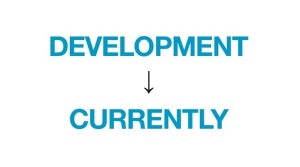
Each time I visit Berlin, I get a strong sense of optimism and renewal. So it’s only appropriate that the launch of the European Responsible Investment Network (ERIN) took place in this city which has undergone so much change. Like the renewed Berlin, the responsible investment field is trying to emerge from its historical identity, redefine its purpose and reimagine the way in which capital markets can serve society.
The event’s topics ranged from the challenges of engaging investors on environmental, social and governance (ESG) issues, the steps investors have actually taken to better incorporate these non-financial considerations, through to the ways in which campaigners can be more effective in influencing policy makers and fund managers. Instead of giving a linear impression of “what went on” at the conference, I’ll focus instead on the key themes that I took away from it. These themes included the function of finance, the challenges of overcoming short-termism, the intersectional nature of individual ESG factors, in addition to how campaigners can more effectively promote change.
There was a general recognition of gaps between the finance industry’s understanding of its responsibilities compared to the issues of most concern to NGOs and CSOs. These gaps can be overcome, but it will require empathy, finding common ground and persistence from all parties involved. All this effort will be for a worthy prize: a financial system which nourishes a sustainable real economy, with the needs of society at its heart.
“Ownership reimagined”
There’s a real buzz in the room when you bring together a group of passionate people motivated by a shared urgency for change. That’s exactly what we had at the Responsible Investment in Europe conference, with an agenda packed with representatives from CSOs, academia, asset owners, fund managers and journalists, all looking to harness the power of financial markets to overcome some of the biggest challenges facing our planet. Catherine Howarth, CEO of ShareAction, the conference’s convenor, put it best when explaining that launching ERIN was about “ownership reimagined” – picturing and advancing a world where investment and finance are “unlocked” for the long-term benefit of society and the environment.
The transformation of finance into to the high-speed complex behemoth of today has led to investment being replaced by trading and long-term societal interests being held hostage by short-term political capture. Despite this, the “new capitalists” of today are ordinary people: workers and retirees who entrust their pensions to professional investors. David Pitt-Watson (UNEP and London Business School) argued that this common ownership of capital requires a reshaping of the system to ensure that capital acts as the servant of the people, rather than their master. Thankfully, signs of change are beginning to appear, not least with the rise of the responsible investment movement. Investors are becoming more engaged in these issues, as evidenced by the support for the COP21 climate change agreement from asset owners and fund managers covering $24 trillion.
However there is much work to be done. Timo Busch (University of Hamburg) demonstrated how actual climate outcomes are continuing along an unsustainable path, despite the increased funding of clean energy projects. Elsewhere, even though there is great enthusiasm for the UN’s Sustainable Development Goals (SDGs), Dionysia-Theodora Avgerinopoulou (COMPSUD) highlighted that educating policy makers is an essential first step to ensure that the issues of sustainable development become part of the mainstream political discourse. Once the commitments made under COP21 and the SDGs are understood by a critical mass, civil society, engaged investors and policy makers will be able to work backwards from these end goals to implement coherent policy responses.
One major area of concern is that the time frame for change in financial markets is measured in minutes and seconds, whereas regulatory and policy responses typically take years or decades. Overcoming the problems associated with short-termism (as I’ve previously written about here) will require a confluence of realigning incentive structures within the investment industry, a change in psychology from consumers and regulations which encourage, rather than hinder, long-term investment. The latter was illustrated by Hendrik Garz (Sustainalytics) through the capital requirements and UCITS investment rules favouring highly liquid investments, resulting in a lack of funding for sustainable infrastructure projects. Reorienting these regulations will enable capital to be diverted to projects which have both a beneficial impact on emissions targets and long-term economic growth.

ESG, not E, S and G
Environmental and carbon-related topics were naturally high on the agenda. To this end, discussions highlighted the role of legislation in providing clear guidelines for asset owners and fund managers to follow. An example given was the requirement for French institutional investors to disclose their quantitative targets relating to carbon exposures, including how these targets are consistent with the commitments under the COP21 agreement. The network effects of this legislation are widespread as these institutions will require look-through disclosures from companies and funds in which they invest. This is clearly a case of “what gets measured, gets managed”, and there were strong calls for not only increased transparency, but also ensuring that the information being disclosed is aligned with users of that information.
While climate change remains a hot topic, several participants stressed that ESG consideration extends beyond the environmental domain, by definition. More important is recognition that many issues cut across multiple ESG factors. The Volkswagen emissions scandal wasn’t simply an environmental issue, the company’s governance and culture was also found wanting. Similarly, Exxon’s well-publicised climate change denial intersects with their extensive use of corporate lobbying and claims of human rights violations.
In that vein, Vonda Brunsting (SEIU) emphasised that issues of climate change, economic justice and racial discrimination are all linked. The lack of diversity in finance has resulted in a reproduction of power structures centred on white male elites, with a prevailing neo-liberal market mindset. By allowing these structures to dominate, investors are very likely ignoring potentially profitable opportunities due to a limited racial or gender perspective when assessing investments. To address these issues, SEIU has begun to seek out fund managers with more diverse investment teams, in addition to introducing measures which improve diversity on their own pension fund boards.
Impressively, SEIU, together with Dutch pension giants ABP and leading Danish plan PKA spoke of the way in which they were guided by their members when choosing to integrate ESG considerations into their portfolios. The latter two groups regularly survey their pension fund members, and issues relating to sustainability consistently top the areas of concern. Importantly, by working with members, these groups have set quantitative targets across a range of non-financial considerations, with regular reporting on progress along these dimensions. For example, PKA have committed to investing 10% of their portfolios to finance direct climate conducive investments by 2020. By listening to their members, these groups are able to ensure that the funds entrusted to them are being managed in a way which is consistent with members’ priorities. Unfortunately, these examples are currently the exception rather than the rule.
Peace, love and understanding
Campaigning and activism often evoke images of protest and adversity. Mick McAteer warned against theatrics when engaging with corporates and investors. Similarly, Louise Rouse highlighted that long-term advocacy work in capital markets relies on forming close relationships with the key actors involved. By building trust, credibility and empathy with investors, campaigners are more likely to understand the parameters which can be changed and the best ways of effecting that change. Part of this understanding includes embracing the complexity underlying financial markets, including the terminology and building blocks within the overall architecture, so that the outcomes reflect the intentions.
Take the example of coal divestment, a case study of a successful investor engagement, with Arild Hermstad (Framtiden i våre hender) and Heffa Schücking (urgewald) speaking of their interactions with the Norwegian sovereign wealth fund. There was much debate on the merits of divestment compared with active engagement; my previous blog post on this captures much of the discussion which arose. However, this example highlighted the complexity involved measuring carbon exposures; a company may generate only a small part of its revenue from coal production, but the amount of carbon emissions may swamp the rest of its overall footprint. Consequently, divesting from energy companies on the basis of how much revenue they derive from coal may completely miss the point. Understanding the technical detail is important to ensure that actions reflect the ultimate impact.

In addition to understanding the technical complexities involved, acknowledging the motives and capabilities of different actors in the system was encouraged. CSOs differ in their areas of focus, experience and resourcing. Teamwork between organisations will be key, hence the importance of initiatives like ERIN in bringing together activists furthering their agenda through capital markets campaigning. Sharing experiences of success and failure, looking at problems from different angles, accessing each other’s data; these are some of the ways for collaboration to lead to more effective engagement.
Likewise, decision makers at asset owners and fund managers may not always share the specific concerns being raised by civil society. Through dialogue and partnership, together with targeting reform-minded influencers within these organisations, CSOs can help educate investors as to how non-financial considerations are ultimately also financial considerations. Unfair labour practices do influence consumer purchasing decisions. Climate change will affect valuations of fossil fuel reserves. Regulation against aggressive tax avoidance will impact on profitability. Demonstrating these effects to investors through a common language of long-termism will help to align interests.
And herein lies one of the biggest challenges for campaigners: in my experience of the mainstream investment industry, ESG topics are not part of vernacular used by fund managers. Whereas earnings multiples, enterprise value and value-at-risk are part of the everyday language of investment analysts, carbon footprinting, human rights, living wages and gender equality are only considered by the extreme margin, in my experience. Campaigners will need to find a way to overcome the existing ingrained market logic so that non-financial factors become part investors’ common vocabulary. Doing so will achieve the goal of “unlocking the system”: aligning the actions of investors with the desired function of finance.
Not “just for one day”
It was with mixed feelings that I left Berlin. On the one hand, I was excited by the passion and enthusiasm of those present at the conference. There is a palpable hunger for change. However on the other hand, I could see the scale and complexity of the issues at hand. Building consensus and understanding between stakeholders will require a lot of heavy lifting. Despite that, I refuse to be a pessimist. After all, this is the city of Bowie’s Heroes, that inspirational anthem which compels us to tear down walls.
Finally, a heartfelt congratulations to ShareAction and the founding members of ERIN on the network’s launch. I wish you great success in engaging with Europe’s investors and corporates, may your impact be on a truly heroic scale.
